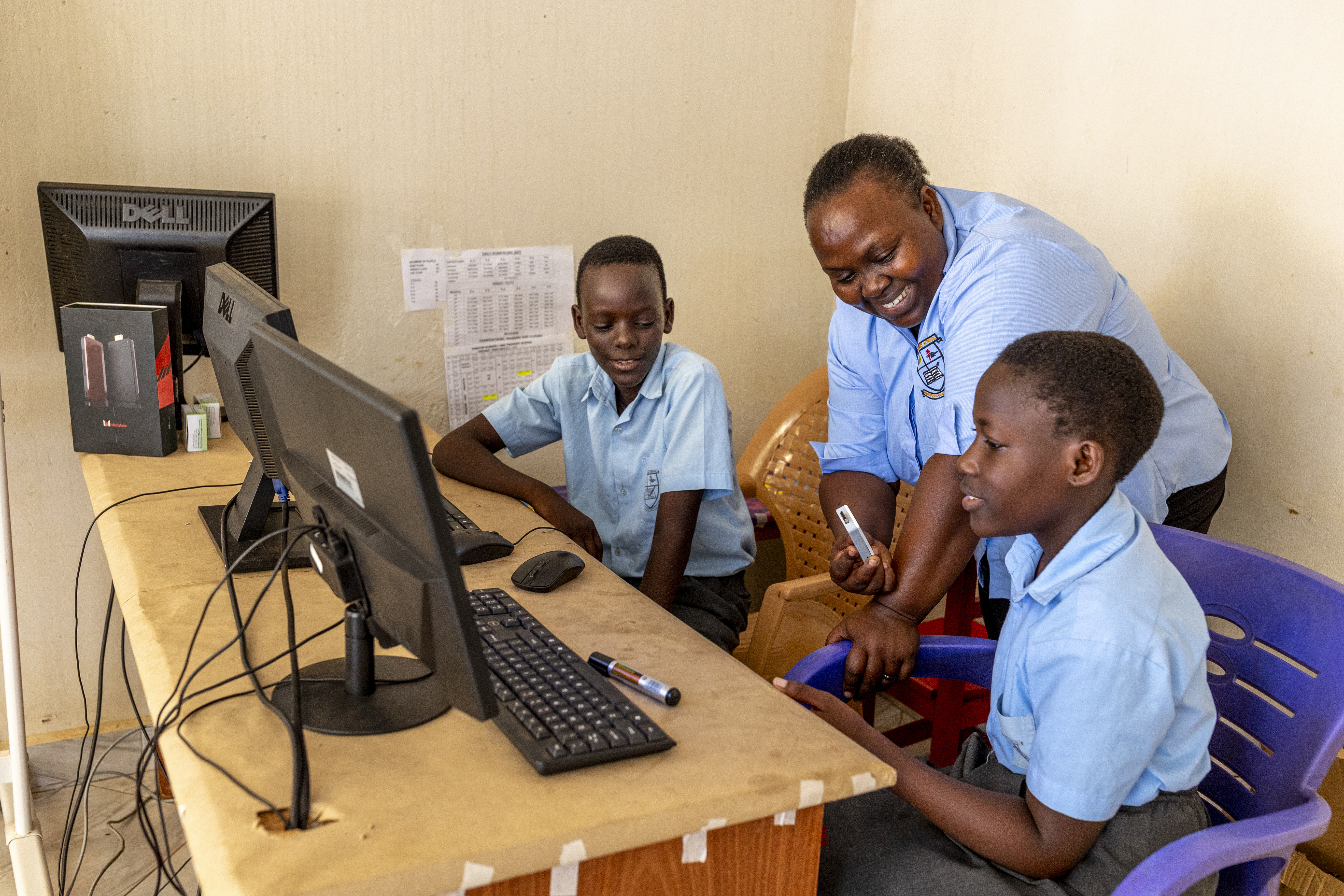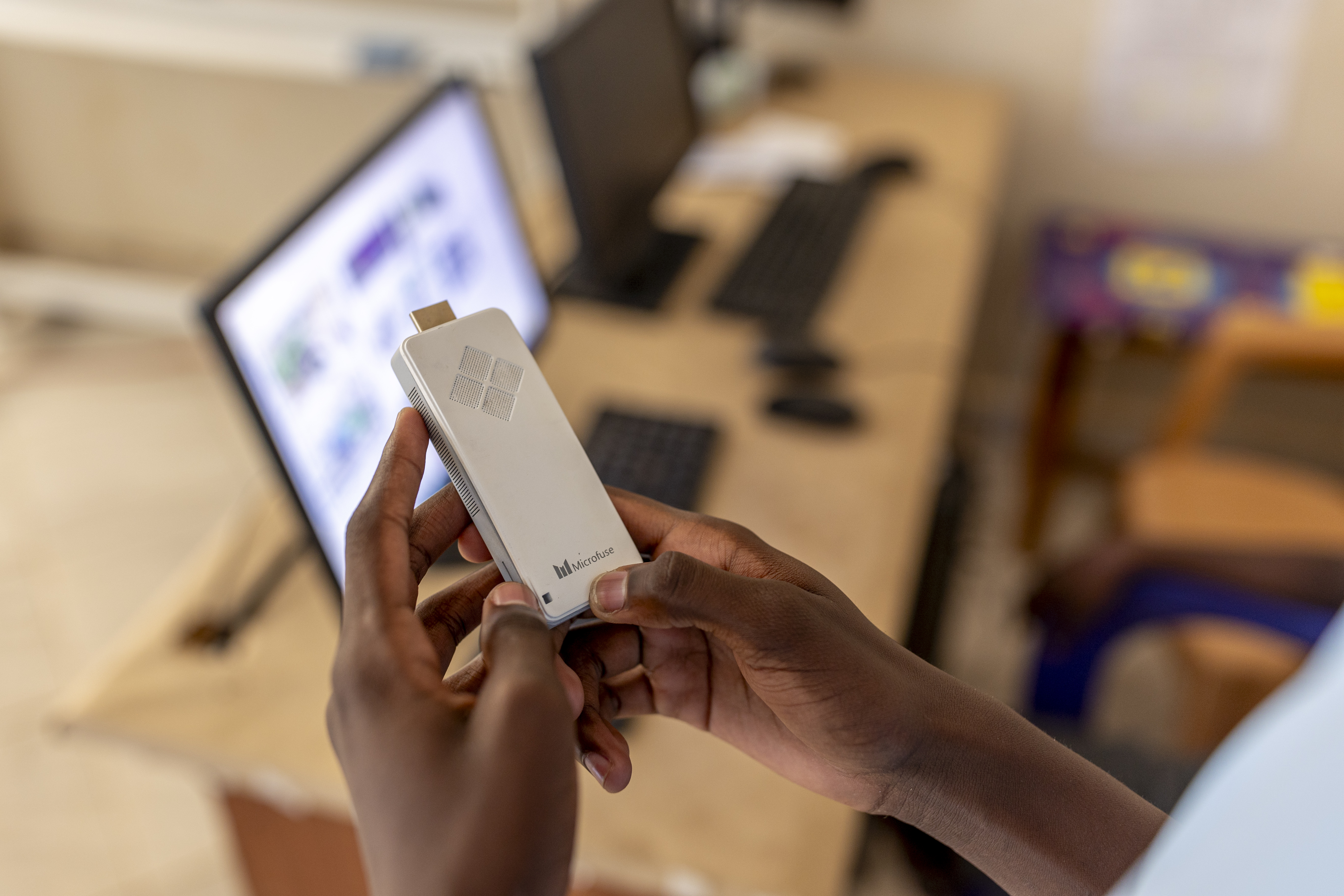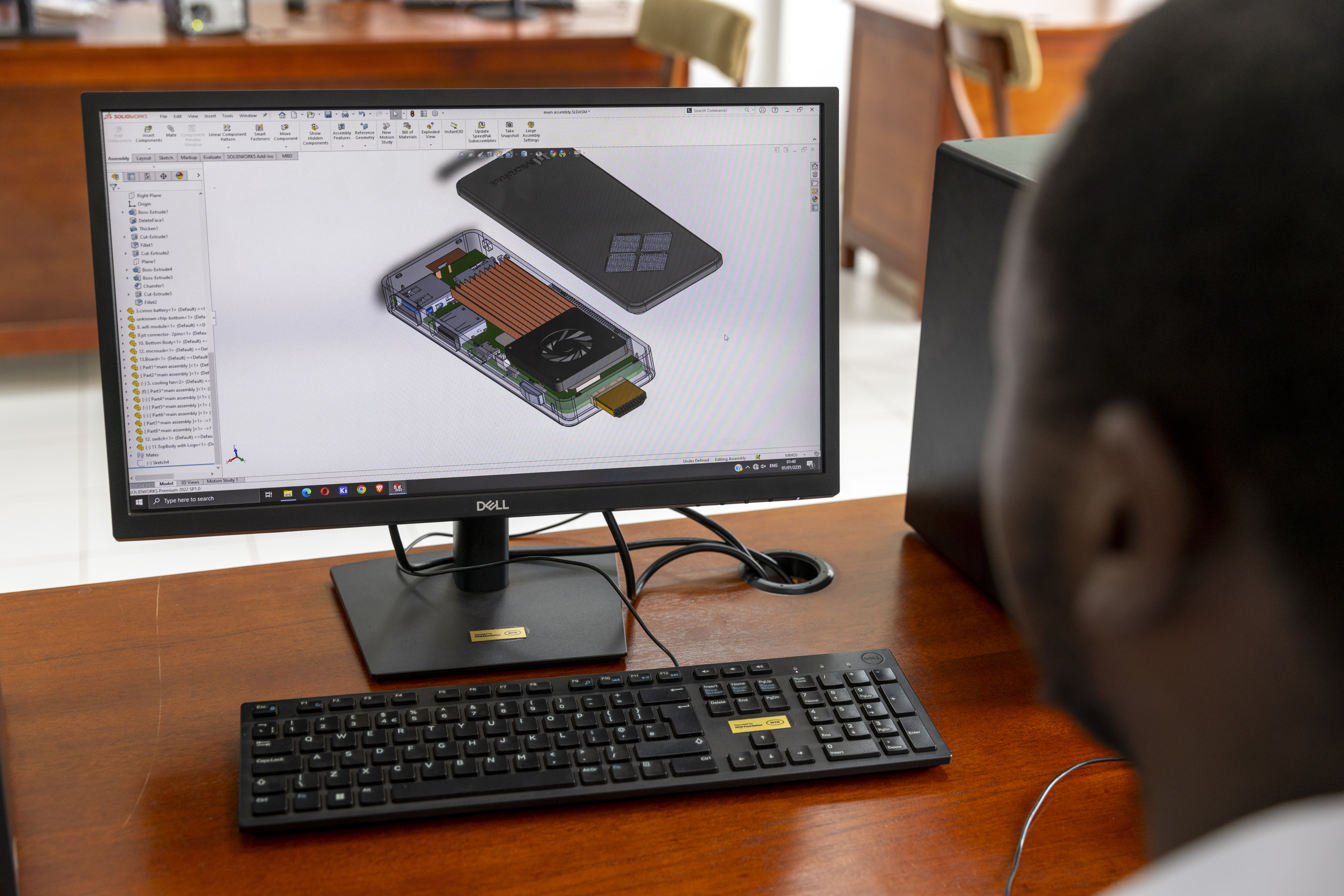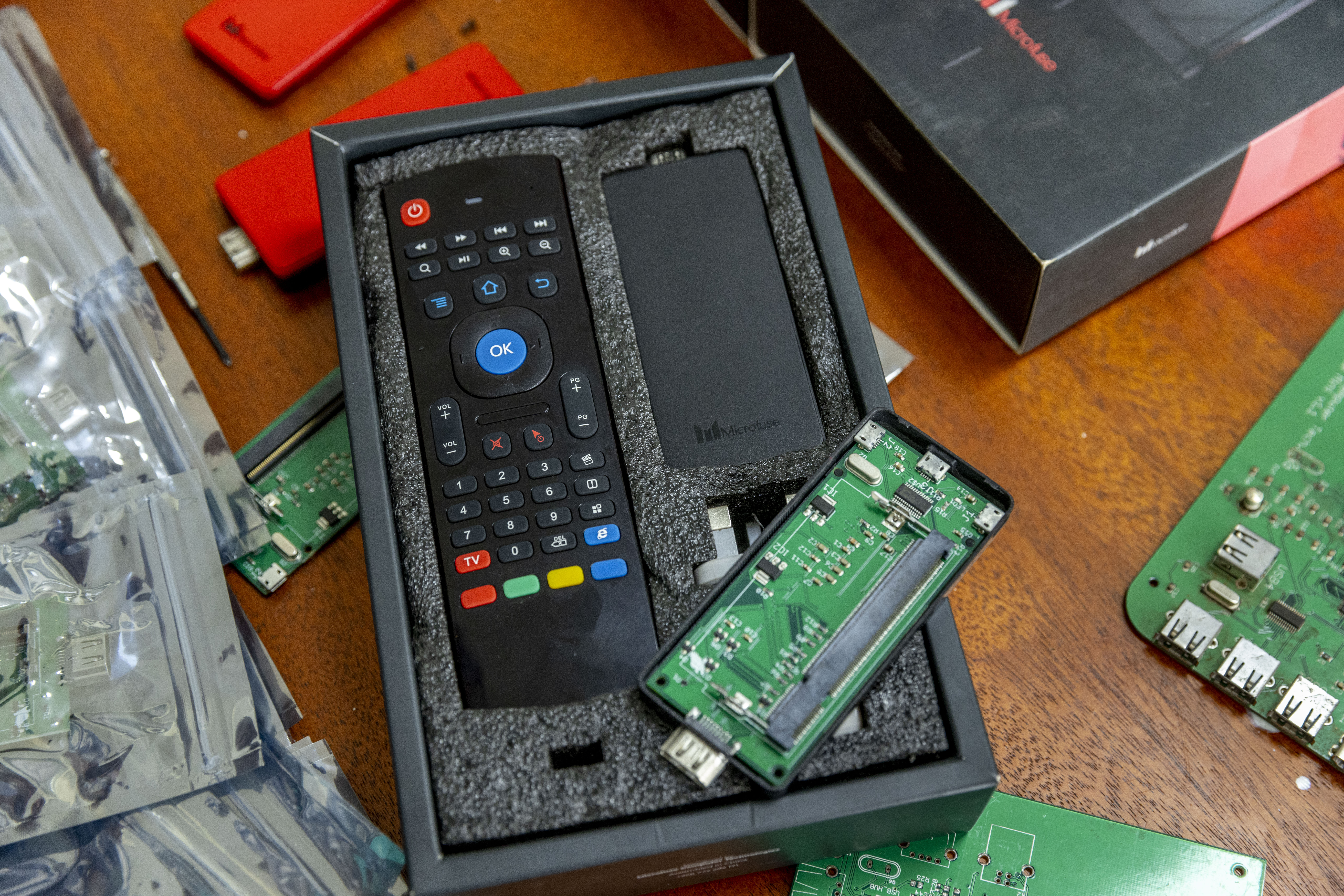Developed by Ugandan mechanical engineer Ivan Karugaba, the small central processing unit, measuring 103mm x 46mm x10mm and weighing 120 grams, has internal storage of 16GB or 32GB. This can be further expanded with SD cards or hard disks. The stick has Bluetooth and wireless connectivity.
Designed and manufactured in Uganda, its robust and energy-efficient design makes it suitable for use in off-grid areas using renewable energy. It comes with a five watt power adapter and three USB ports that can connect to keyboards. The Microfuse Stick Computer can run Microsoft Windows and has the functionality of a standard desktop computer or laptop at less than half the cost – US$100 compared to US$250.
Karugaba’s innovation aims to provide affordable and energy-efficient computing to Uganda, where only 3% of the population have access to computers or smartphones, helping to bridge the digital divide. The device comes with a cable for easy connection to screens, and a remote control that can function as a mouse. The back of the remote has a QWERTY keyboard, so users can type like they would on a normal computer. A mobile phone can also plug in to be used as a mouse.
The Microfuse Stick is currently being used in 20 schools in and around Uganda’s capital Kampala. Education apps developed by Karugaba’s team are also available. The stick is being piloted among savings groups and saving and credit cooperative organisations, a project funded by Actogether, an organisation overseeing 500 savings groups. Its aim is to digitise financial activities among the groups for increased credibility with larger financial institutions.
Karugaba and his team are working with Uganda’s Ministry of Science and Technology to establish a local electronics design, assembly and hardware incubation facility in one of Uganda’s industrial parks. They are doing this though grant funding and by collaborating with Qualcomm – a US-based wireless technology company – to develop more energy-efficient chips. They aim to increase the innovation’s versatility by integrating a native artificial intelligence application for education.
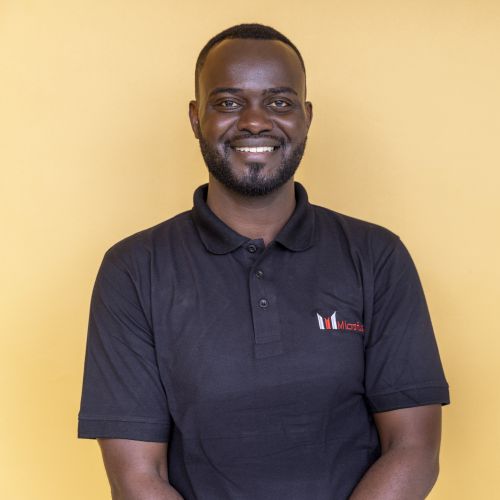
By providing an affordable and compact plug-in computing device, my team hopes to empower students and teachers. We aim to revolutionise access to computers in Uganda and help include the country’s most underserved schools and households in the fourth industrial revolution.
Ivan Karugaba
